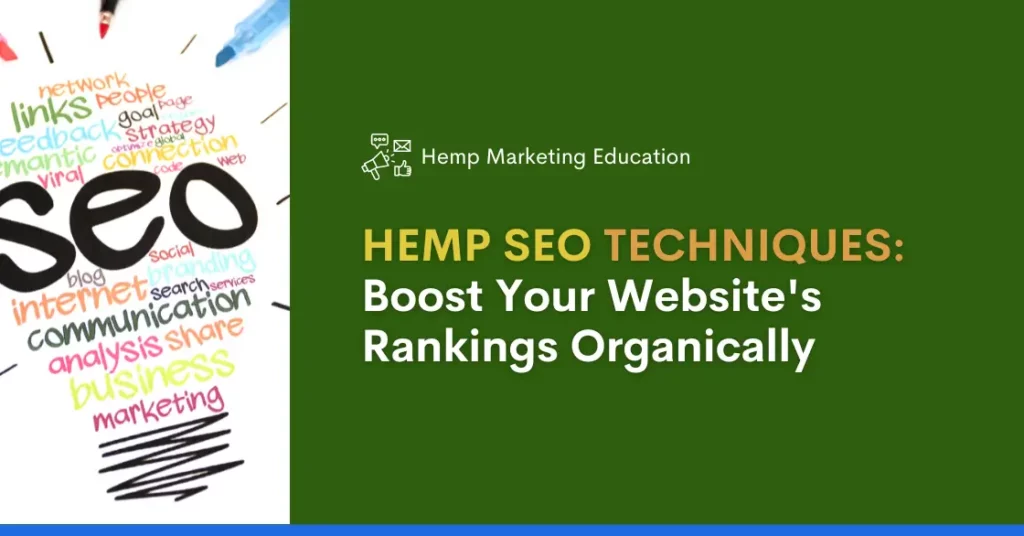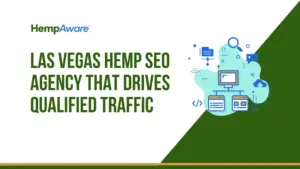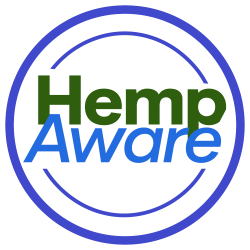Are you having trouble getting your website seen online?
The secret to being noticed is mastering search engine optimization (SEO).
By using the right hemp SEO techniques, you can make your website more visible and draw in more visitors.
SEO is more than just pleasing search engines.
It’s about making your site better for users. When you optimize your site, you help people find what they need.
This leads to more engagement, higher conversion rates, and business growth.
Knowing the basics of SEO is important today. With over half of web traffic from mobiles, mobile SEO is key. Also, site speed, quality backlinks, and unique content are important for better rankings.
As you explore SEO, remember it’s a continuous journey.
Search engines change their rules often.
So, it’s important to stay updated and adjust your strategies to keep and improve your rankings.
Key Takeaways
- SEO enhances your website’s visibility and user experience
- Mobile optimization is crucial with over 50% of web traffic from mobile devices
- Unique, high-quality content is essential for SEO success
- Site speed significantly impacts search rankings and user satisfaction
- Backlinks remain a key factor in determining a site’s authority
- Regular monitoring and adapting to algorithm changes is necessary
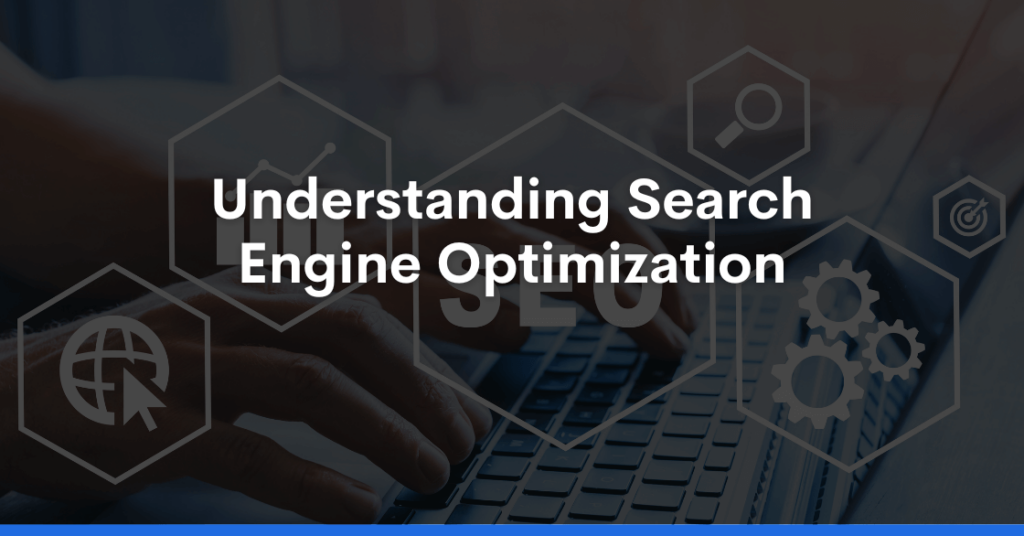
Understanding Search Engine Optimization
Search Engine Optimization (SEO) is key for website owners wanting more online visibility.
It makes your site rank higher in search results.
With 53% of all website traffic coming from organic search, knowing SEO is vital.
What is SEO?
SEO makes your website better for search engine algorithms.
It improves site speed, content quality, and mobile-friendliness.
The aim is to show up first in search results for what people are looking for.
Why is SEO important for your website?
SEO is crucial today for many reasons:
- More visibility: Higher rankings mean more people see your content
- Targeted traffic: SEO brings users who are actively searching for what you offer
- Cost-effective: SEO gives long-term results without ongoing costs, unlike ads
- Trust and credibility: People trust organic search results more than ads
How search engines work
Search engines have complex ways to show relevant results:
- Crawling: Bots find new and updated content
- Indexing: They organize and store this content in a huge database
- Ranking: When you search, the engine picks the best results from the database
Knowing how these processes work is essential for effective SEO strategies.
By optimizing your site, you improve rankings and user experience.
This builds a stronger online presence.

Keyword Research: The Foundation of SEO
Keyword research is key to good SEO.
It helps you know who you’re talking to and what they want.
By finding the right keywords, you make content that people like and find easier.
Long-tail keywords are very important.
They are specific and less crowded.
They help you get more specific visitors to your site.
When you do keyword research, think about these things:
- Is it right for your content?
- How many people search for it?
- Is it competitive?
- What do people want when they search for it?
Tools like Google Analytics, SEMrush, and Ahrefs help find good keywords.
Also, look at what your competitors are using.
This can show you what you’re missing.
| Keyword Type | Example | Benefit |
|---|---|---|
| Short-tail | SEO | Many people search for it |
| Long-tail | Best hemp SEO techniques for small businesses | Less competition, more specific |
| Question-based | How to improve website rankings? | Answers specific questions |
Using these keywords in your content, titles, and descriptions helps a lot.
Search engines use keywords to see if your page is good.
So, putting keywords in the right places is very important for better rankings.

On-Page SEO Techniques
On-page SEO is key to making your website more visible
By focusing on important elements, you can get better rankings and more visitors.
Optimizing title tags and meta descriptions
Title tags and meta descriptions are very important.
Keep title tags short, between 50-60 characters, to avoid cuts in search results.
Include your main keyword to show the page’s topic.
For meta descriptions, aim for 120 characters for mobiles.
Use active language and clear calls-to-action to get more clicks.
Creating high-quality, relevant content
Quality content is essential for Hemp SEO success.
Do deep keyword research to find good topics and keywords.
Use long-tail keywords with less competition but still relevant.
Put these keywords naturally in your content to rank better.
Using header tags effectively
Header tags help organize your content and make it easier to read.
Use them to show a clear structure on your page.
Include important keywords in your headers to help search engines.
This helps both users and search engines understand your content’s layout.
Optimizing images and multimedia
Visual content makes your site better for users and SEO.
Use clear file names and alt text for images, adding relevant keywords.
This helps search engines understand your images and makes your site more accessible.
| On-Page SEO Element | Best Practice | Impact on SEO |
|---|---|---|
| Title Tags | 50-60 characters, include target keyword | Improves relevance and click-through rates |
| Meta Descriptions | 120 characters, use active voice | Enhances user engagement |
| Header Tags | Create clear hierarchy, include keywords | Improves content structure and relevance |
| Image Alt Text | Descriptive, keyword-rich | Boosts image SEO and accessibility |

Technical SEO: Improving Your Website’s Backend
Technical SEO is key to making your website better for search engines.
Focus on site speed, mobile friendliness, structured data, and XML sitemaps.
These steps can really help your site show up more in searches.
Site speed matters a lot for both users and search engines.
Use PageSpeed Insights to check your site’s speed.
You can make it faster by cutting down on extra characters in HTML, CSS, and JavaScript.
Mobile responsiveness is very important today.
Make sure your site works well on all devices.
This will help your search rankings and make users happy.
Structured data helps search engines get your content.
You can use HTML or tools like the WYSIWYG Structured Data Markup helper.
This can make your site look better in search results.
XML sitemaps are important for telling search engines about your site’s pages.
They’re very helpful for sites with lots of images or videos.
Make sure to list your most important pages first to help Google crawl your site better.
| Technical SEO Element | Importance | Implementation Tips |
|---|---|---|
| Site Speed | Critical for user experience and rankings | Use PageSpeed Insights, minify code, leverage CDN |
| Mobile Responsiveness | Essential for modern web browsing | Test on various devices, use responsive design |
| Structured Data | Helps search engines understand content | Use HTML coding or markup helper tools |
| XML Sitemaps | Guides search engines through your site | Prioritize important pages, update regularly |
Technical SEO is something you need to keep working on.
Check your site often and make changes as needed.
This will help keep your search rankings up.
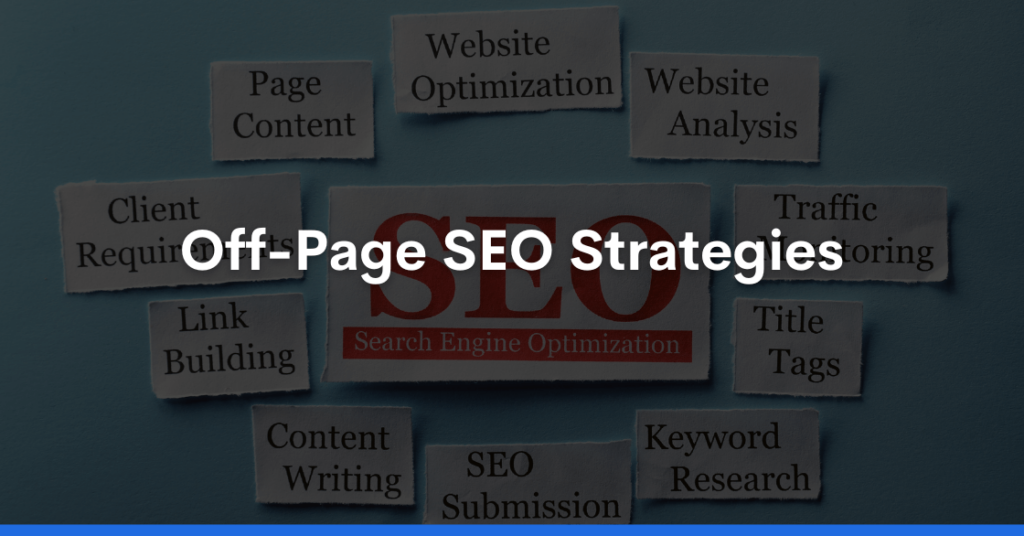
Off-Page SEO Strategies
Off-page SEO is key to boosting your website’s rankings.
It’s about actions outside your site to make it more visible and credible.
Let’s look at some top off-page SEO techniques to boost your online presence.
Building High-Quality Backlinks
Link building is a big part of off-page SEO.
Getting backlinks from good websites can really help your site’s authority.
Sites like Homes & Gardens have a high Domain Authority (DA) and Page Authority (PA).
They rank well for many keywords because of their backlinks.
This shows how important backlinks are for your site’s success.
Social Media Marketing for SEO
Social media signals from sites like LinkedIn, Facebook, and Twitter can help your online image.
Even though social media links don’t directly affect rankings, they make your brand more visible.
Sharing engaging content can also bring more traffic to your site.
Local SEO Techniques
For local businesses, local citations are crucial.
Make sure your business info is the same everywhere online.
This helps search engines know your business is real and boosts local search rankings.
| Off-Page SEO Strategy | Benefits | Examples |
|---|---|---|
| High-Quality Backlinks | Improved domain authority, better rankings | Guest posting, broken link building |
| Social Media Marketing | Increased brand visibility, engagement | Content sharing, influencer collaborations |
| Local Citations | Enhanced local search presence | Google My Business, Yelp listings |
Using these off-page SEO strategies can make your website more authoritative and visible.
Remember, being consistent and focusing on quality is crucial for lasting SEO success.

Content Optimization for Search Engines and Users
Content marketing is key to SEO success.
Focus on what users want and make content that meets their needs.
Update your content often to stay relevant in search rankings.
Make your content deep and valuable. Articles that go in-depth show you know your stuff. Use clear headings and short paragraphs to make it easy to read.
- Research keywords to align topics with user searches
- Understand keyword intent (informational, commercial, navigational)
- Include head keywords in the first paragraph
- Use proper header structure for better context
Add graphics and videos to keep people on your site longer.
Google gets 3.5 billion searches every day.
By focusing on depth and freshness, you’ll rank better and get more visitors.
| SEO Factor | Importance |
|---|---|
| High-quality content | 26% weight in rankings |
| Organic search | 49% of marketers consider highest ROI |
| Google market share | 92% of search engine market |
Use these tips to build a solid SEO base.
Always think about what your audience wants and follow search engine rules.

Mobile Optimization: Catering to Smartphone Users
In today’s world, mobile SEO is key. Most internet use comes from smartphones.
Your site needs to meet these users’ needs.
Let’s look at how to boost your mobile presence.
Responsive design principles
Responsive web design makes your site look good on all devices.
It changes layouts, images, and text for different screens.
This leads to happier users and better search rankings.
Mobile-first indexing
Google now indexes mobile sites first. Even for desktop searches, mobile content is important.
Make sure your mobile site has all the key content from your desktop site.
Improving mobile page speed
Mobile users often face slow internet. Fast pages are crucial for a good user experience.
Here are ways to make your mobile site faster:
- Optimize images
- Minimize server requests
- Reduce scripts
- Use browser caching
Think about using accelerated mobile pages (AMP) for even quicker loading.
AMP makes mobile pages super fast.
| Mobile SEO Factor | Impact |
|---|---|
| Responsive Design | Decreased bounce rates, increased engagement |
| Mobile-First Indexing | Improved search rankings |
| Page Speed Optimization | Better user experience, higher conversion rates |
| AMP Implementation | Faster loading, potential visibility boost |
By focusing on these mobile SEO tips, you’ll make your site better for smartphone users.
This will also help your search rankings.
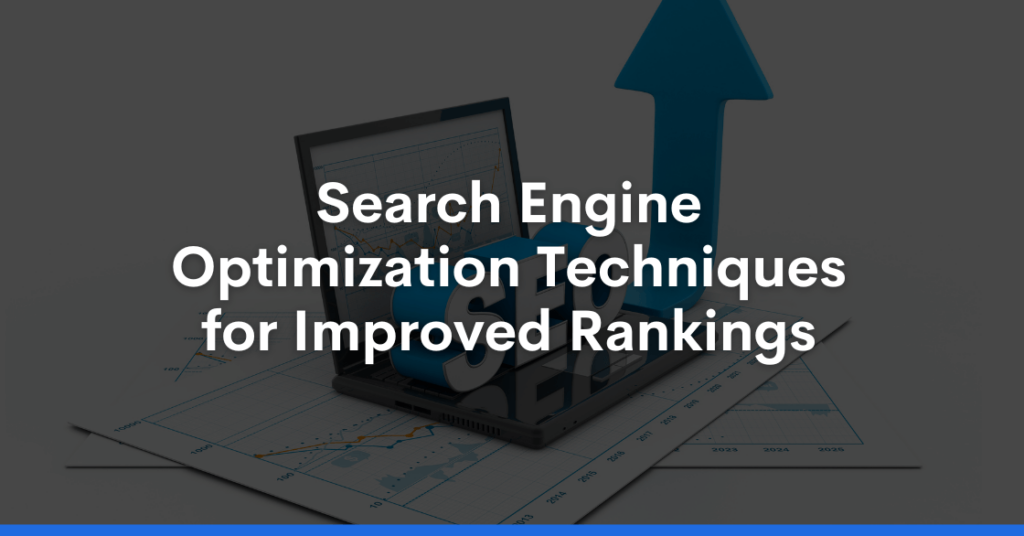
Search Engine Optimization Techniques for Improved Rankings
SEO best practices change often, thanks to search engines’ updates.
Google updates its algorithm about 12 times a day.
To keep up, focus on making your site easy to use.
This means better navigation, faster loading times, and valuable content.
On-page optimization is key for your site’s ranking.
Make sure your meta descriptions and titles are good.
They help when people share your links on social media.
Don’t stuff keywords, as search engines can spot and punish this.
Use internal linking to help search engines find your content.
This can really help your SEO. Off-page SEO, like backlinks, shows your site’s trustworthiness to search engines.
- Study top pages to see what works
- Use visual content to guide your strategy
- Find new keywords with a gap analysis
- Use broken link building in your outreach
Use tools like Semrush for insights and link building. Check your site often for technical issues. By keeping up with SEO trends and focusing on user experience, you’ll boost your rankings.

Measuring SEO Success: Analytics and Reporting
It’s important to track your SEO performance to improve your website’s rankings.
Web analytics tools give you insights into how your site performs and what users do.
By watching key SEO metrics, you can make smart choices to grow your online presence.
Key Performance Indicators (KPIs) for SEO
Organic traffic is a key KPI, showing visits from unpaid search results.
Use Traffic Analytics to see how your organic traffic stacks up against competitors.
Keyword rankings tell you where your site stands on search engine results pages (SERPs).
Track these daily with Position Tracking tools.
SERP visibility and organic impressions show how often your site pops up for searches.
These are important to track.
Tools for Tracking SEO Performance
Google Analytics and Google Search Console are must-haves for keeping an eye on SEO success.
They give you data on organic traffic, bounce rates, and conversion rates.
Lighthouse Audit helps measure your website’s performance and accessibility.
Use these tools to get a full picture of your SEO metrics.
This helps you find areas to improve.
Interpreting SEO Data and Making Adjustments
Regularly analyze your data to find trends and chances.
Look at click-through rates (CTR) to see if users choose your site from search results.
Check bounce rates and time on page to see if your content is good.
Use scroll depth analysis to make sure key info is easy to find.
Based on these insights, tweak your SEO strategy to keep improving your website’s search performance.
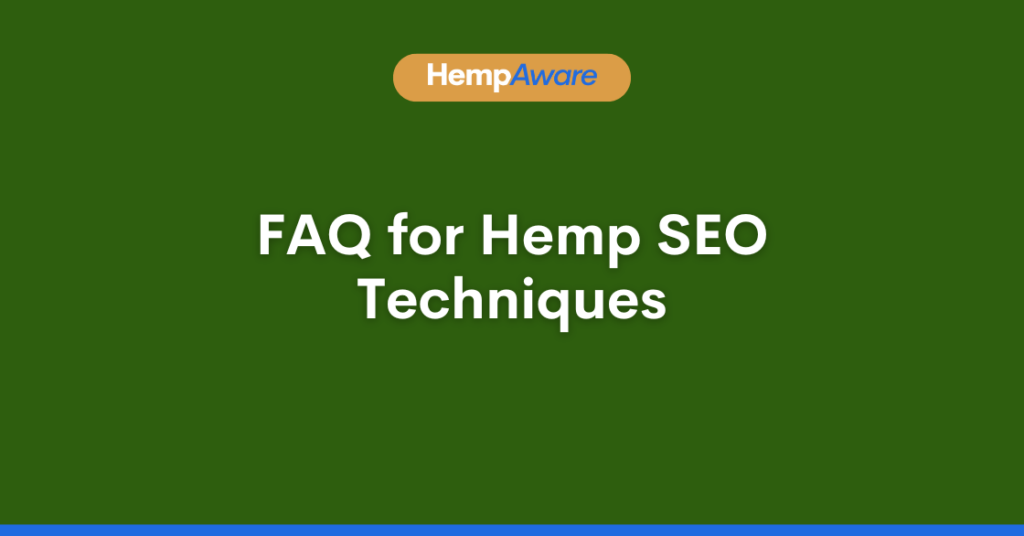
FAQ for Hemp SEO Techniques
What is SEO?
SEO stands for Search Engine Optimization. It helps make websites more visible in search results.
This is done by using various techniques to reach both search engines and users.
Why is SEO important for my website?
SEO brings more visitors to your site from search engines.
When your site ranks higher, more people see it. This can lead to more visitors, better brand awareness, and more sales.
How can I conduct effective keyword research?
To find the right keywords, look at what people search for related to your business.
Use tools to help, and focus on long-tail keywords. This way, you can find good opportunities.
What are some on-page SEO techniques?
On-page SEO makes your web pages better for search engines and users.
Use keywords in titles, meta descriptions, and content.
Also, make sure your content is high-quality and easy to read.
What is technical SEO?
Technical SEO makes your website easy for search engines to find and index.
Improve your site’s speed, make it mobile-friendly, and use structured data.
These steps help your site rank better.
How can I build high-quality backlinks?
Get backlinks from good websites through content marketing and guest blogging.
You can also find broken links to replace and build relationships with influencers.
This boosts your site’s authority.
What is mobile optimization, and why is it important?
Mobile optimization makes your site work well on phones.
Google now indexes mobile versions first.
Use responsive design, improve speed, and consider AMP for faster mobile loading.
How can I measure the success of my SEO efforts?
Track important metrics like organic traffic and keyword rankings.
Use tools like Google Analytics and Google Search Console.
They give you data to improve your SEO strategy.
Reference Links for More SEO Education
- https://biziq.com/seo/ – The Ultimate Guide to SEO: A Beginner’s Guide from the Experts
- https://backlinko.com/hub/seo/best-practices – 10 Best Practice to Improve Your SEO Rankings
- https://www.semrush.com/blog/seo-results/ – SEO Results: How to Track & Measure SEO Performance
- https://moz.com/beginners-guide-to-seo/measuring-and-tracking-success – Measuring & Tracking SEO Success [Beginner’s Guide to SEO]

